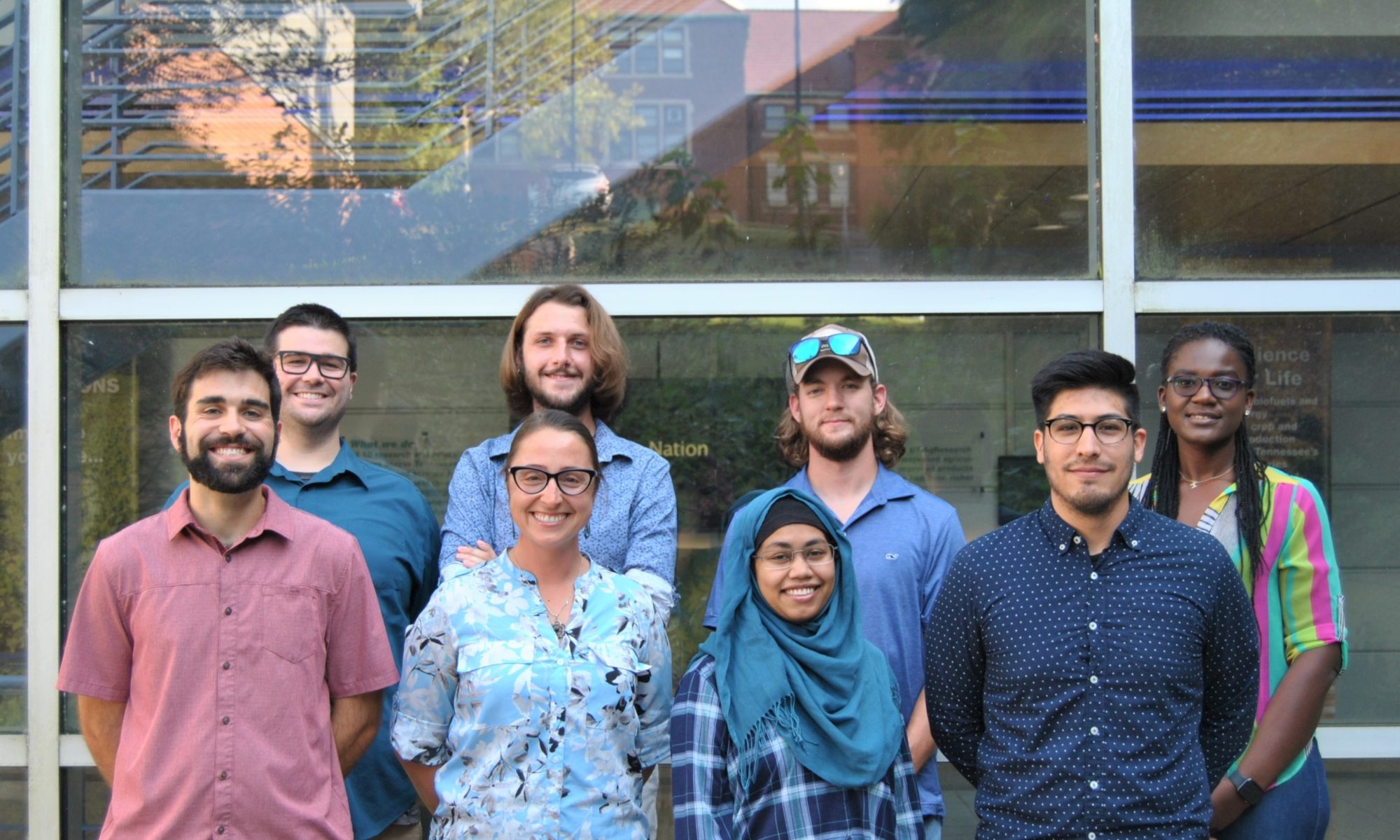
Student veterans face barriers in earning advanced degrees. A UTIA task force is working to overcome them.
A task force has formed at the University of Tennessee Institute of Agriculture to investigate how the university’s graduate degree programs serve the needs of students who are military veterans and the feasibility of adding resources to help student veterans attain master’s and doctoral degrees.
It all started in a fungal pathogen research laboratory operated by associate professor Denita Hadziabdic Guerry of the Department of Entomology and Plant Pathology.
As Hadziabdic Guerry explains, “A few years ago, Casey Richards, a Marine student veteran in the Department of Ecology and Evolutionary Biology, joined my lab as an undergraduate research assistant. There was something about Casey that caught my attention, and I really liked working with him.”
What she noticed, Hadziabdic Guerry says, was how hard Casey worked, his positive attitude, his commitment and dedication to responsibilities, and his utter reliability. “When Casey took on a project, I knew I could trust him and did not need to follow up to make sure he addressed every step. I realized the strengths he had came from his military background.”
As Casey neared graduation, Hadziabdic Guerry followed her usual practice of asking a departing lab member to recommend students they knew who would fit well in the lab. “And that led to two more veteran assistants, Ivan Perez and Justin Kosiewska, who are presently with my lab,” Hadziabdic Guerry says.
“In getting to know them I discovered the obstacles that can limit or prevent previous service members from enrolling in graduate study. Yet earning a master’s degree will unlock new career paths for veterans and access to higher incomes, two areas where so many struggle.”
Hadziabdic Guerry knows these struggles. Growing up in war-torn Bosnia, her father was a soldier, along with most able-bodied men across the country. She saw their plight in finding work after the war and how widows, including her mother, struggled to survive on the small stipends soldiers and their survivors received.
“Opportunities for veterans to have secure jobs or steady income can be limited. A challenge facing former service members entering college is that many are first-generation students, like I am. They don’t know how to find the resources or people who can assist them. Someone helped me, and that’s why I’m here. They need people to help, too.”
A second problem these students can encounter, she adds, is that their GI benefits generally run out before or soon after they could begin graduate study. The Post-9/11 GI Bill provides veterans with tuition, and vouchers for textbooks and housing, but that is for a maximum of thirty-six months, and most or all of that time is consumed earning a bachelor’s degree.
Awareness of those contexts prompted Hadziabdic Guerry to set out to learn more about veteran access to graduate study at UT. “I’m a doer,” she says. “This is what I do.”
As she pursued information, Hadziabdic Guerry met other faculty and staff who through professional interest or personal reasons wanted to become involved. Her investigations of limited resources for graduate education among the veteran population ultimately led Hadziabdic Guerry and Bonnie Ownley, head of graduate studies in the Department of Entomology and Plant Pathology, to meet with UTIA Senior Vice Chancellor and Senior Vice President Carrie L. Castille and Chief of Staff Bill Hoffman.
“We went to ask if fellowships could be created to serve student veterans,” Hadziabdic Guerry says. “I felt this would truly be giving back to those who served us.”
Yet the meeting with Castille grew into something larger. “Dr. Castille told us she is very supportive and enthusiastic of this effort, and that led to our charge to form a task force and study of the current status, as well as potential areas of growth, in how our graduate programs serve student veterans,” she says.
An organizational meeting held earlier this semester brought together faculty and staff members interested in veteran graduate education, launching a six-member task force to assess the current status of veterans enrolled in graduate study and the resources that serve them. Jayetta Rogers, director of the UT Veterans Success Center, is assisting the research by furnishing data on the current enrollment of veterans in the UT Knoxville Graduate School.
“The support that student veterans need could include everything from an endowment to a dedicated study lab. We are meeting with a group of these students soon to hear what they say is needed for their success,” Hadziabdic Guerry says.
The task force intends to provide Castille with a written report of their findings by fall semester’s end.
Task force members are:
- Bonnie Ownley, professor, assistant department head, and director of graduate studies, Department of Entomology and Plant Pathology
- Lacey Johnston, senior lecturer, Department of Animal Science
- Jennie Ivey, associate professor, Department of Animal Science
- Toni Wang, professor, Department of Food Science
- Bill Hoffman, chief of staff, Office of the Senior Vice Chancellor and Senior Vice President
- Denita Hadziabdic Guerry, associate professor, Department of Entomology and Plant Pathology
Learn more about this initiative by contacting Hadziabdic Guerry or any member of the task force.